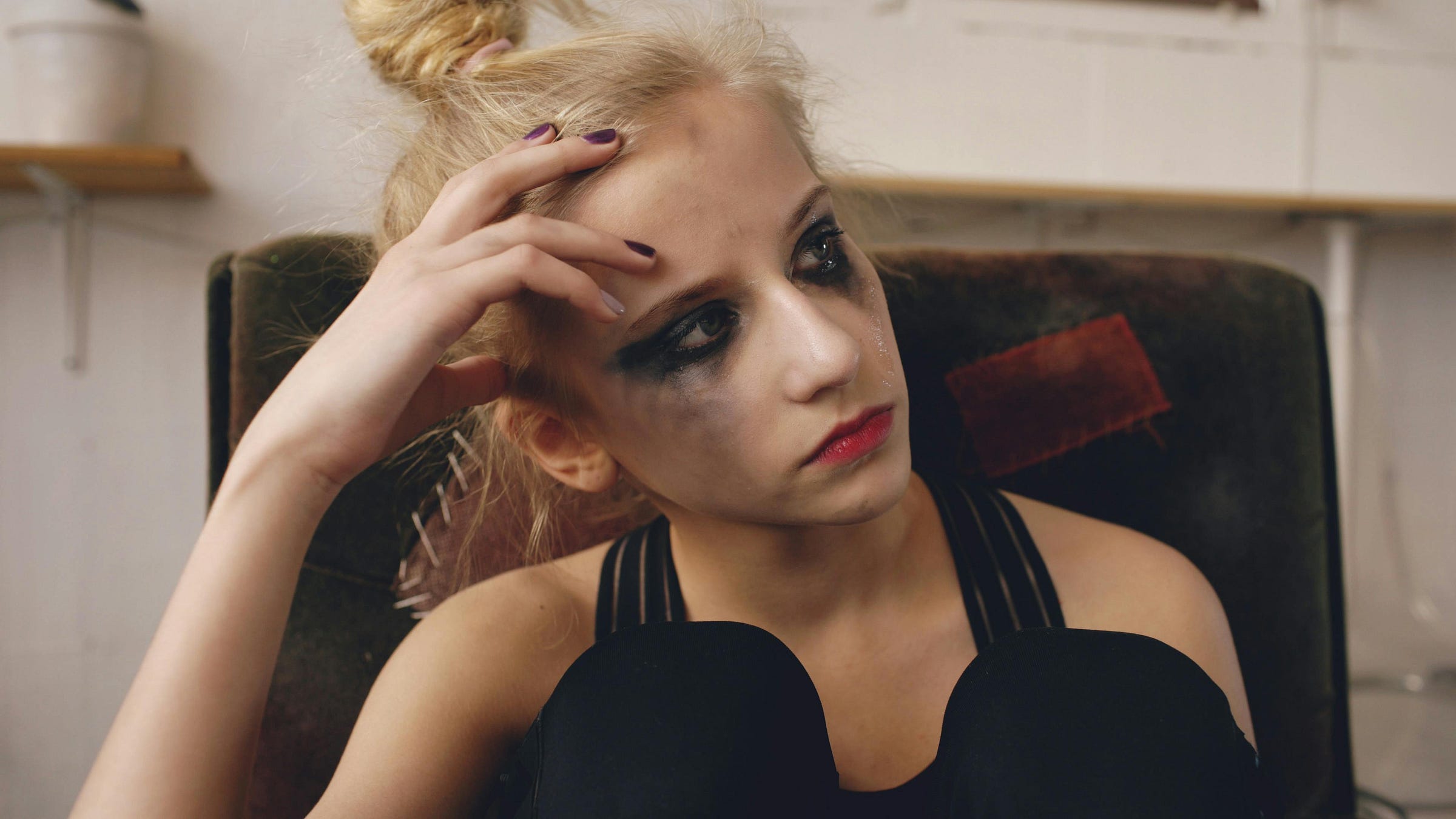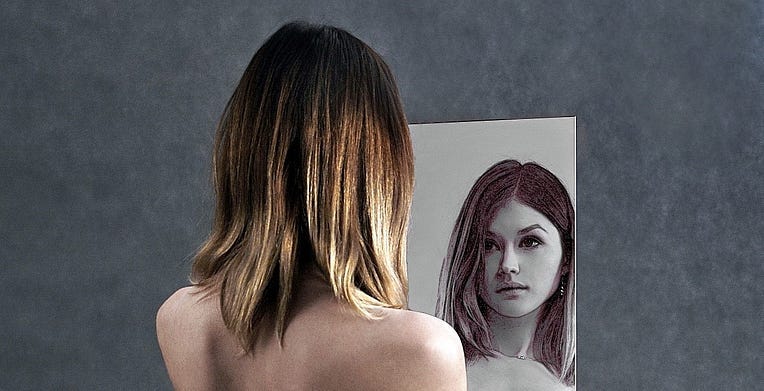Facing the Mirror
Verbal abuse hardens your soul until you find it difficult to recognise what you have become

Girl in the Mirror (fictionalised)
He followed me into the bathroom, shoved his palm against my cheek and pushed my face up against the mirror.
“Juss look at yorself, you f-ing tart,” he spat the words into my ear.
“I — I… can’t see, too close,” I mumbled.
He grabbed my arm, roughly pulling me back, and we both took in my reflection.
“That crap on yer eyes.”
Staring ahead, I saw the mask I had spent time perfecting five hours earlier. The neat eyeliner and subtle foundation. The lipstick that matched my nails and the eye-shadow that complimented the hazel of my iris. The girl glaring back could have been my doppelgänger. She looked like me, but I felt totally removed from her,
Verbal abuse hardens your soul until you find it difficult to recognise what you have become.
Finally, he walked out the door — turned and scathingly muttered, “Ge’ yorself a real man, not that little squirt from down the road.”
A tear cleared a path through the rouge as it tricked down my cheek.
It wasn’t easy being seventeen. Finding your way in the world and searching for yourself at the same time.
I took a tissue from my pocket, ran it under the tap and smeared the make-up across my face. Now the mirror depicted reality, I looked and felt like dirt.
Once in bed, I curled up into a ball, hugging my knees and sobbed. I had to leave home. I couldn’t bear to live in the same house as my stepfather any longer.

The story behind the story
When I wrote Girl in the Mirror a few years ago, I reflected back to a time when I had been very uncertain about myself and crafted a fictionalised tale around my feelings and the situation from then.
It was not surprising that I was full of doubt as a teen. I was about seventeen and being bullied from a couple of directions.
My stepfather, featured in the Girl in the Mirror story, often abused me with his deeply hurtful words. Plus, an acquaintance who mixed in similar circles had taken to shaming me in public. I think he may have been trying to get back at my adopted dad, but at the time I hadn’t worked this out, so it weighed on my young shoulders
I would put on a mask of heavy makeup, then when I stared in the mirror the girl staring back looked a lot like me but was more equipped to guard herself from the slurs others attempted to control her with.
The theme of control has in fact been an unwanted force running through my life. Men and women have often attempted to box me in to keep me from shining too brightly.
I finally freed myself about eleven years ago.
Writing fictionalised stories can really help a person to heal - like exploring your feelings in personal essays.
Mixing truth with storytelling to put across how a situation made you feel can produce powerful narrative.
Girls in the Mirror is about 75% true. As I said, my stepfather was frequently verbally abusive towards the teenage me, and he also hated that I wore make-up. But he wasn’t a drunk. He didn’t like the boyfriend I mention, but that was later, when I was about 21. And… yes, I wanted to leave home, but didn’t manage this until I was nineteen.
Thank you for reading. This is a free story - If you are not a paid member, please consider signing up with my Month of May half price offer here:
And I - May - love the month of May. So full of hope!



I agree, May. Fictionalizing what happened to us is a good way to make sense of it, to work through it and maybe even set that first step to healing. Also, it makes others out there know they are not alone. I'm sorry you had to go through this!
Lovely to 'see' you here May and to read your work on Substack!
Thanks for this enlightening story and your honesty in revealing its source and the emotions that prompted it.
We really do write our best work when our 'emotional heart' infuses it!